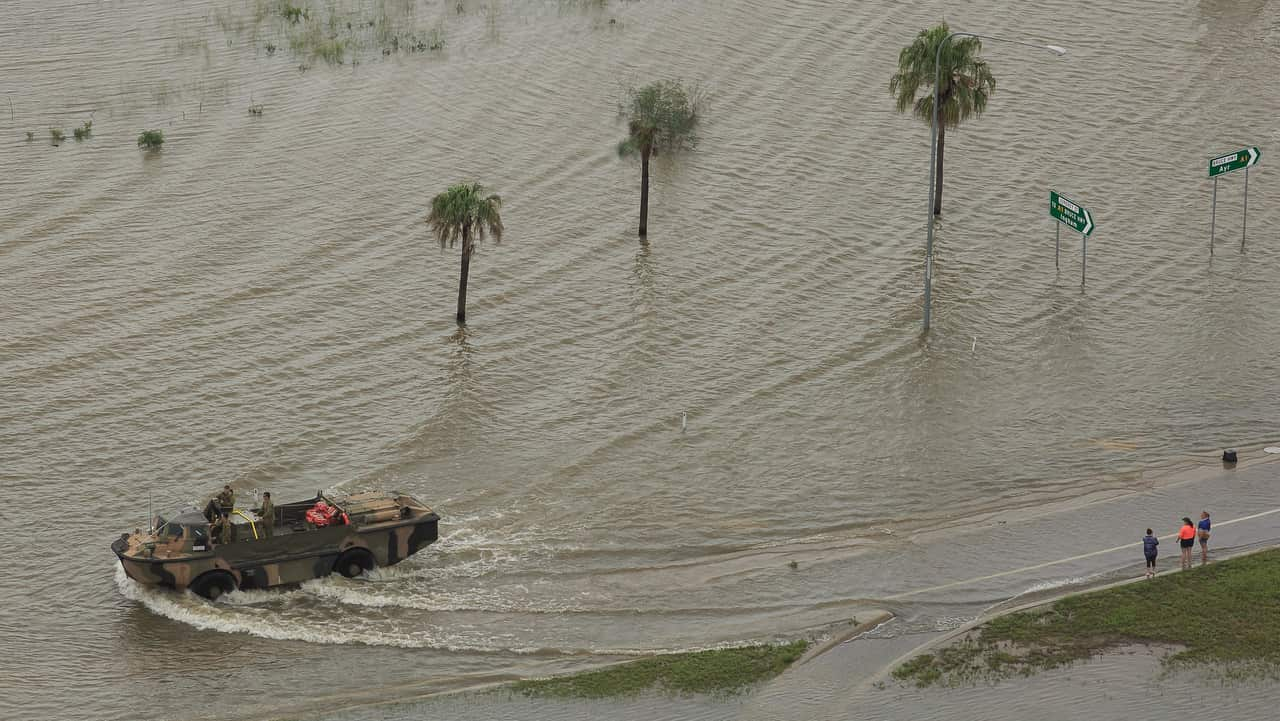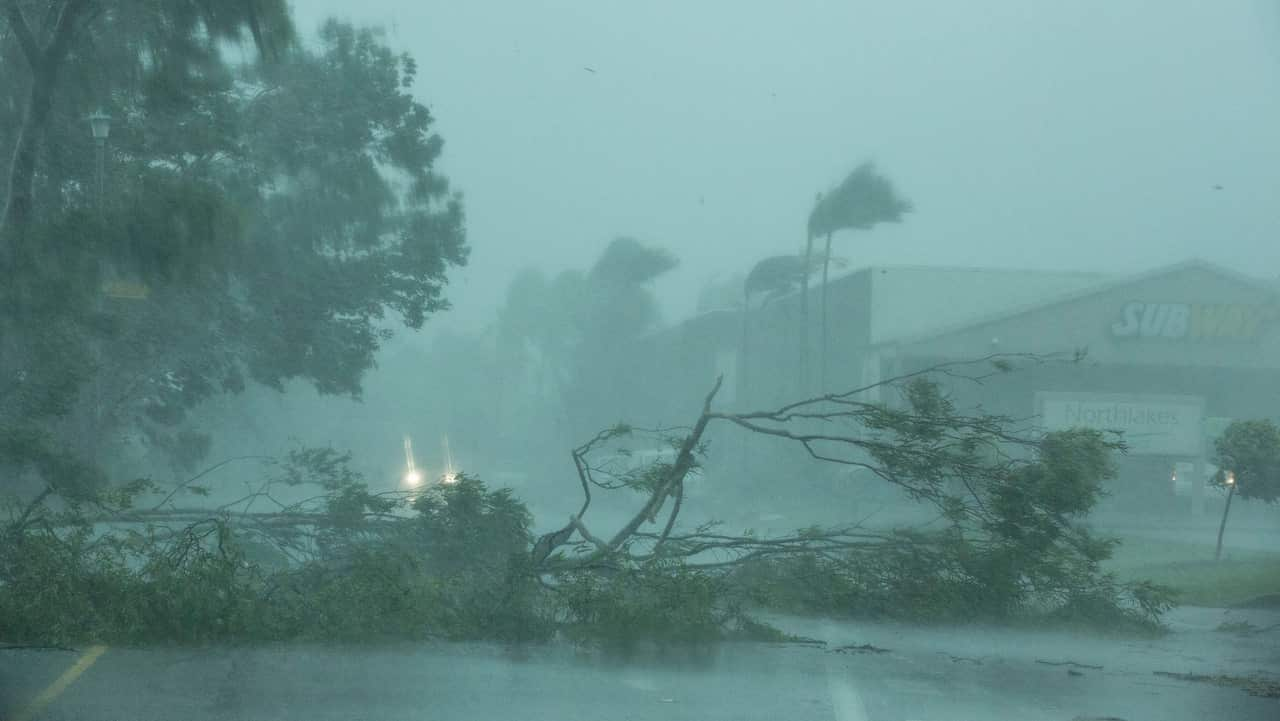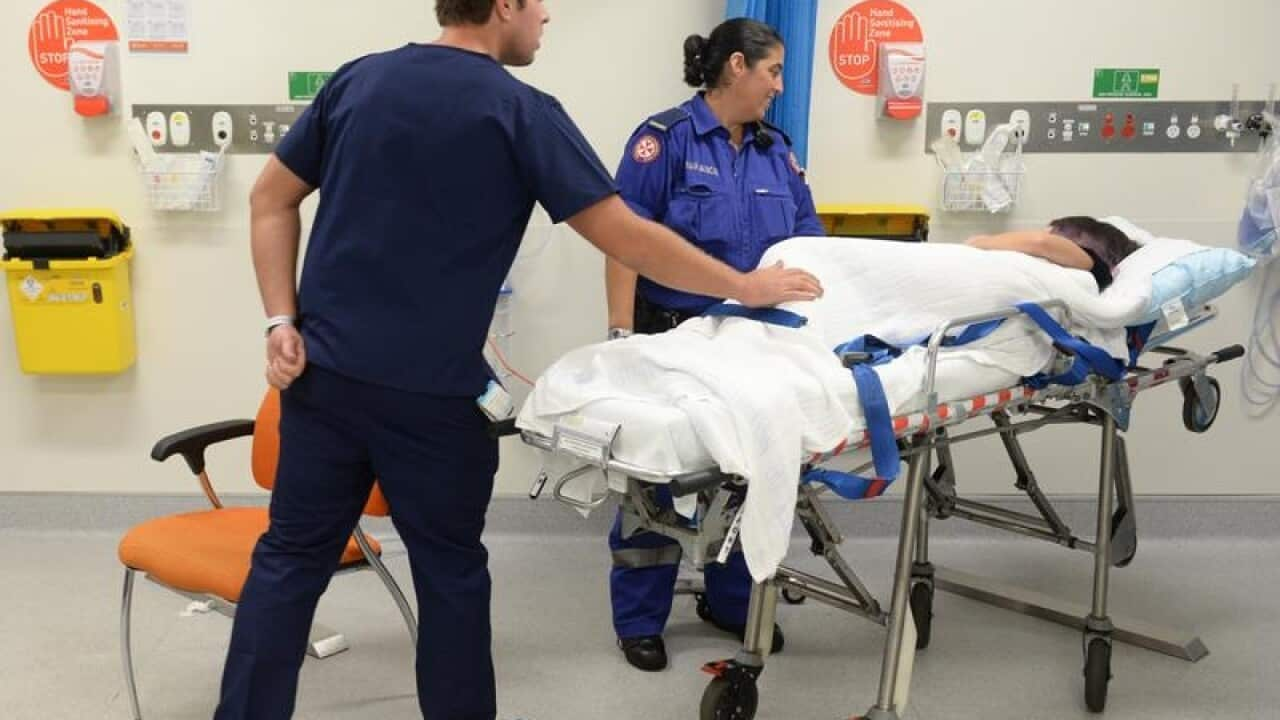Climate change must be factored into efforts to prevent childhood gastro across the globe because there is a link between the disease and extreme weather, a new study has found.
Data on cases around around the world caused by a common parasite have been reviewed by researchers at the Australian National University, to identify factors that may have influenced them.
The water-borne parasite, cryptosporidiosis, is particularly likely to lead to gastro in children younger than five. Factors considered included water and sanitation infrastructure, population density and local rainfall patterns, along with the likelihood of extreme weather in the region, such as flooding.
Factors considered included water and sanitation infrastructure, population density and local rainfall patterns, along with the likelihood of extreme weather in the region, such as flooding.

Ross River floods several suburbs in Townsville on 4 February 2019. Source: AAP
A link between rainfall and flooding and the gastro cases was clear in some regions, with illness patterns in areas near the equator correlating with how much rain had fallen the month before.
Lead researcher Dr Aparna Lal says she had expected water and sanitation infrastructure to hold a greater influence in the area.
She argues the findings show climate must be considered by those trying to prevent diseases, along with socio-economic and cultural issues.
"We need to factor in climate to better understand how these diseases might respond to future changes in our climate," Dr Lal told AAP.
Stopping such diseases in their tracks can't involve only one sector, she stressed. "We need the social scientists on board, we need the natural scientists on board and we need the clinicians and the medical practitioners on board.
"We need the social scientists on board, we need the natural scientists on board and we need the clinicians and the medical practitioners on board.

Winds create destruction as Tropical Cyclone Marcus bears down on Darwin on March 17, 2018. Source: AAP
"If we know heavy rainfall or a flood is going to flush pathogens through our drinking water then we need meteorologists looking at weather patterns, the water industry and catchment managers monitoring water quality, as well as health sector and medical practitioners being prepared for a possible increase in childhood gastro."


